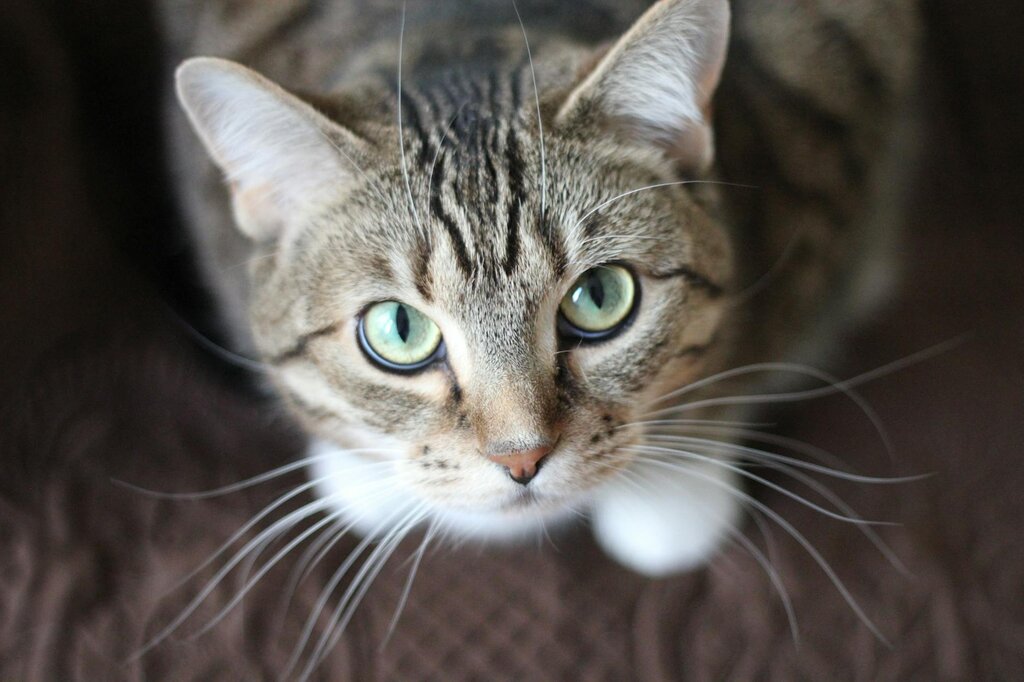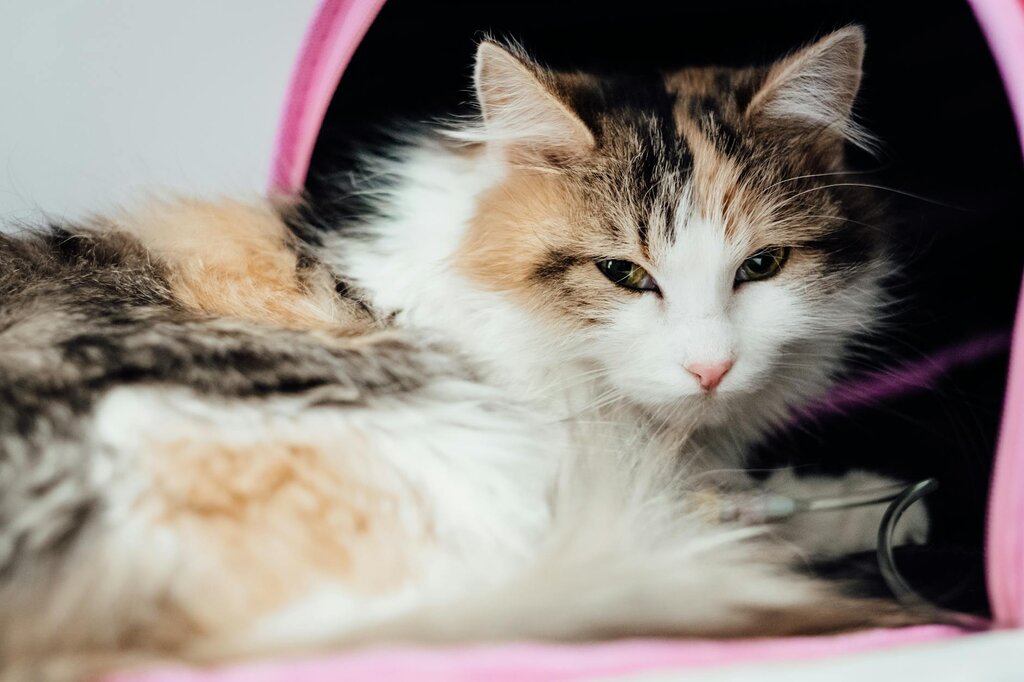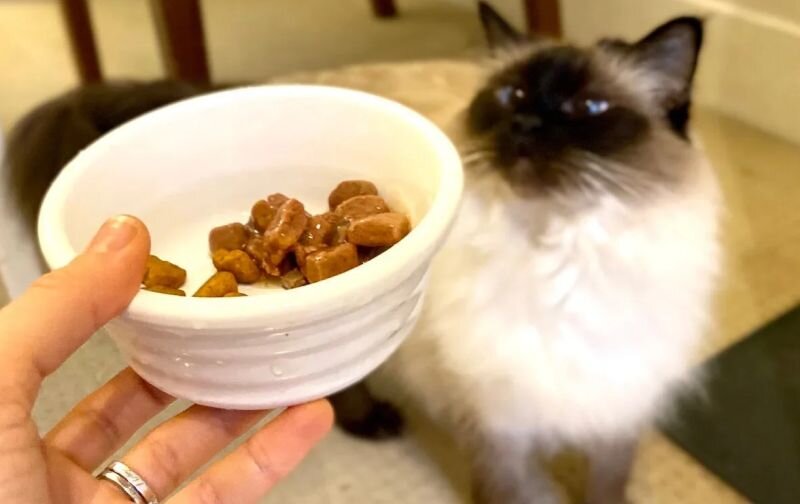Dehydration - this is the most common contributor. Dehydration can be caused by decreased water intake if your cat isn't drinking enough water, or increased water loss such as from kidney disease, vomiting, diarrhoea, or medication causing increased urination.
Hairballs - common in long-haired cats. While many hairballs are regurgitated, or 'coughed up', some hairballs may pass through the intestines and cause an uncomfortable blockage in the colon. Read more about how to manage Hairballs in Cats.
Ingestion of foreign bodies - if your cat may have ingested something they shouldn't have, it could cause constipation. This is a medical emergency.
Orthopaedic issues such as arthritis or pelvic injuries - if your kitty finds it painful to assume the 'pooping position', they may be holding on for longer than they should. This can lead to dehydrated stools that become difficult to pass.
Neurologic disorders - If there is a problem with the nerves connecting to the smooth muscle of the colon, the colon can become limp and create a megacolon. This can occur with a spinal cord injury, for instance during a car accident, or in an animal with intervertebral disc disease (IVDD - commonly seen in Dachshunds). Certain medications, such as opioids, can also cause the nerves or smooth muscle to become inactive.
Genetic problems - for example, Manx cats can suffer from congenital spinal cord deformities.
Medications - some drugs can slow the motility of the gastrointestinal tract. These include opioids, anticholinergics, or sucralfate
Stress or behavioural reasons - such as a change in environment, a new animal in the household, or any problems with the litter box
Megacolon - this is a condition where the colon dilates, enlarges, and becomes immotile. It may be secondary to chronic dry faecal bulk, or it may have no known cause. Read more about Megacolon in Cats.
Tumours of the intestinal tract, colon, anal glands, or associated area.




